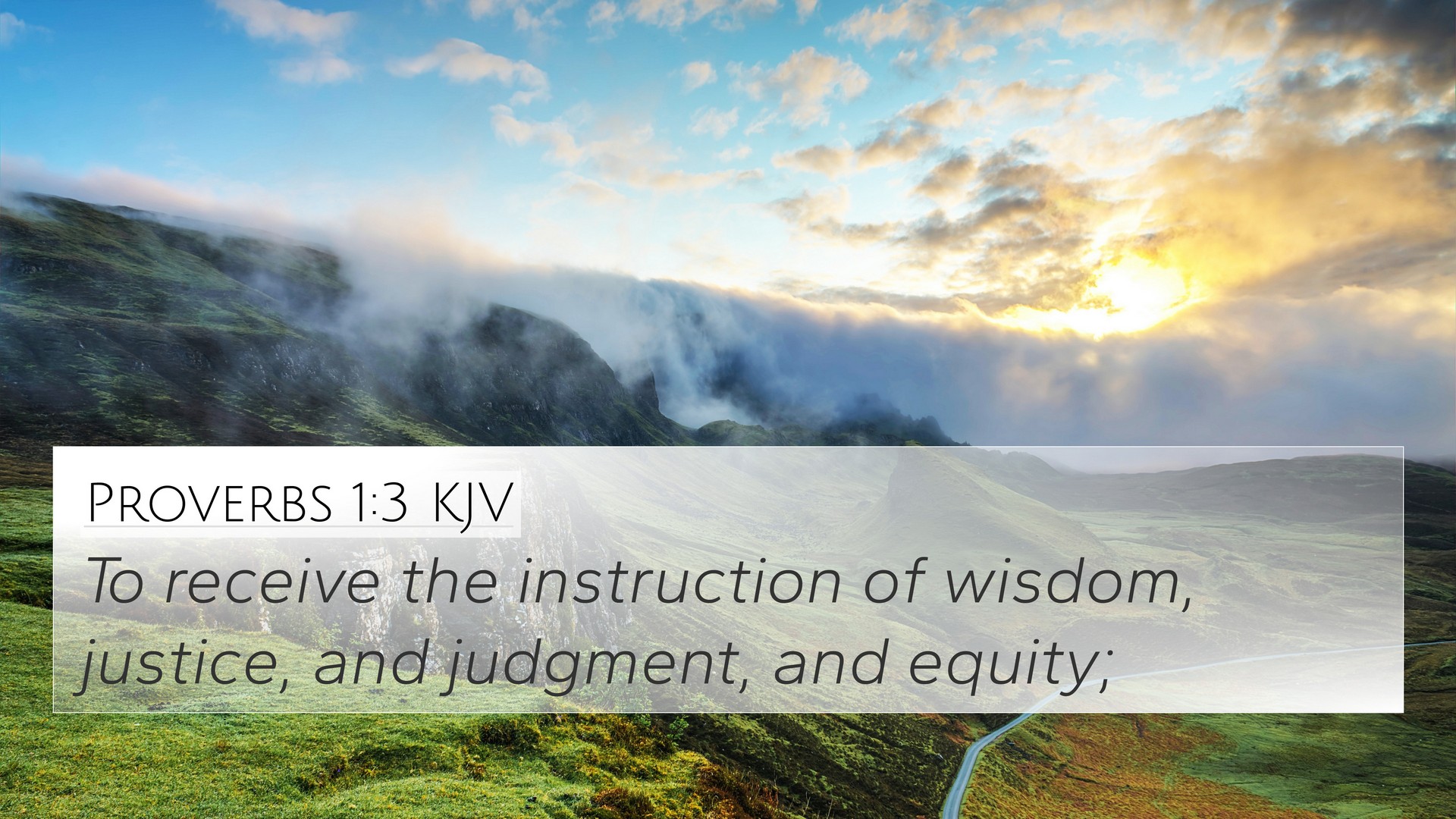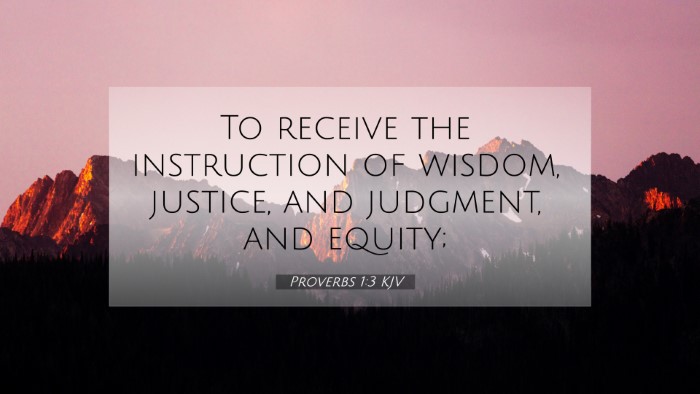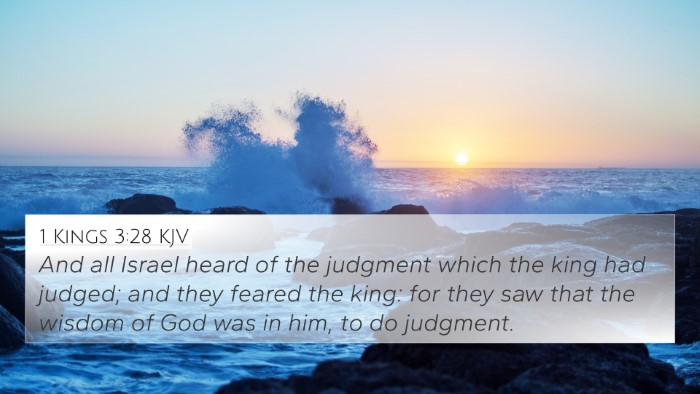Understanding Proverbs 1:3
Proverbs 1:3 states: "To receive the instruction of wisdom, justice, and judgment, and equity." This verse highlights the foundational purpose of the Book of Proverbs, emphasizing the importance of wisdom and sound moral judgment in our lives.
Summary of Meaning
This verse serves multiple theological and practical purposes. It is an invitation to embrace wisdom and morality, urging individuals to seek understanding that enriches their lives and those around them. Each aspect of 'wisdom, justice, and judgment, and equity' is a vital component of a well-rounded character, essential for navigating both personal and communal responsibilities.
Insights from Public Domain Commentaries
-
Matthew Henry notes that the instruction of wisdom leads to a life characterized by discernment and ethical standards. He emphasizes the transformative power of wisdom in a believer's life.
-
Albert Barnes elaborates on the terms used in this verse. He defines "wisdom" as the ability to make sound judgments and choices that reflect God's truth. Barnes states that "justice" and "judgment" refer to the ethical principles that guide actions, while "equity" denotes fairness and balance in one's dealings.
-
Adam Clarke mentions that these qualities are interconnected, suggesting that true wisdom cannot exist without justice and equity. Clarke highlights that the acquisition of knowledge is the first step, but its application in life is where true wisdom is evident.
Bible Cross References
This verse connects with several others that reinforce its themes:
- Proverbs 2:6 - "For the Lord gives wisdom; from his mouth come knowledge and understanding."
- James 1:5 - "If any of you lacks wisdom, let him ask of God, who gives to all liberally and without reproach, and it will be given to him."
- Ecclesiastes 7:12 - "For wisdom is a defense as money is a defense, but the excellence of knowledge is that wisdom gives life to those who have it."
- Micaiah 2:21 - "He shall judge thy people with righteousness, and thy poor with judgment."
- Isaiah 1:17 - "Learn to do well; seek judgment, relieve the oppressed, judge the fatherless, plead for the widow."
- Proverbs 21:15 - "It is a joy to the just to do judgment: but destruction shall be to the workers of iniquity."
- 2 Timothy 3:15 - "And that from childhood you have known the Holy Scriptures, which are able to make you wise for salvation through faith which is in Christ Jesus."
Thematic Connections
Connections between Bible verses are essential for a holistic understanding of Scripture:
- Wisdom and Justice: Proverbs 2:9 - "Then you will understand righteousness and justice, equity and every good path." This verse emphasizes a deeper understanding of ethical living that stems from wisdom.
- Judgment and Equity: Micah 6:8 - "He has shown you, O man, what is good; and what does the Lord require of you but to do justly, to love mercy, and to walk humbly with your God?" This verse relates closely by showing God’s desire for His people to engage in just actions grounded in humility.
- Scriptural Evaluation: Romans 12:2 encourages believers to "not be conformed to this world, but be transformed by the renewing of your mind." This transformation is a reflection of the wisdom discussed in Proverbs.
Importance of Cross-Referencing
Cross-referencing Biblical texts allows a richer understanding of Scripture. Tools for Bible cross-referencing can enhance one’s study by revealing:
- Thematic Bible verse connections that guide moral living.
- Comparative Bible verse analysis that clarifies the nuances of biblical concepts.
- Identifying connections between Old and New Testament teachings that affirm God's consistent character and will.
Conclusion
Proverbs 1:3 invites its reader to a journey of understanding deeper ethical standards and wisdom. By linking this verse to others, one can see a rich tapestry of biblical truth that encourages believers to seek out wisdom from God. Engaging in cross-referencing not only brings clarity to specific verses but also strengthens the overall scripture narrative, guiding one toward a life characterized by justice, equity, and moral integrity.






